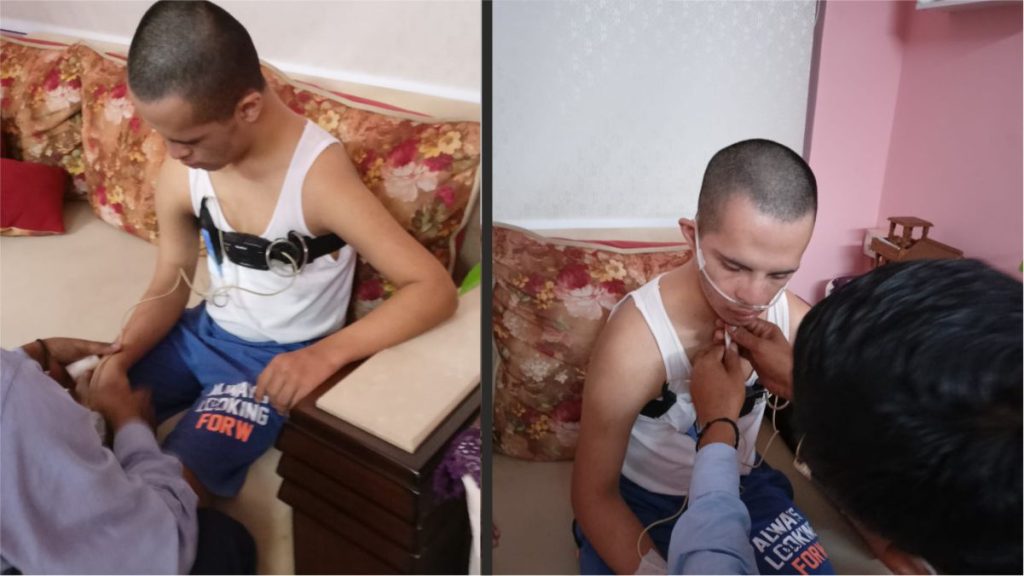Some parents have asked what is sleep study and how sleep tests are done for our children. We often see our children or adults waking up several times during the night, sometimes choking or coughing while sleeping, or waking up with dry lips as most of them sleep with their mouths open due to the thickness of their tongues, and overall have irregular sleep throughout the night. I was also facing a similar situation with my son for a couple of years, so finally, last October, we had Aditya’s sleep test done at home under the guidance of Dr. Kshitij, an ENT specialist who performed Aditya’s ear surgery. According to new guidelines, sleep tests yield the best results when conducted in a home environment. Prepare your child for the sleep test by showing them some videos available on YouTube and explaining that it’s a painless process.
Here are some key points to note:
- No medication is required for the test.
- The child or adult should follow their regular routine on the day of the test.
- Have dinner at least two hours prior to your sleep schedule.
- The technician came to our house around 9 pm and set up the machine on Aditya’s chest. The technician explained how to switch the machine on and off and what parameters to check while it was functioning.
- Aditya was initially hesitant and uncomfortable, but when we explained that no needles or medicine would be involved, he agreed.
- He usually sleeps around 10:30 pm but couldn’t fall asleep until 12 am that day.
- He finally fell asleep around 12:30 am and woke up around 8:30 am. A minimum of six hours of sleep patterns is required for the study; if the readings are incorrect, the test will be repeated at no additional charge.
- We removed the machine at 8:30 am after switching it off, and the technician came again in the morning to collect it.
- The reports arrived two days later, and we visited the doctor for advice. The total cost of the test was Rs 5,000 plus the doctor’s consultation charges.
